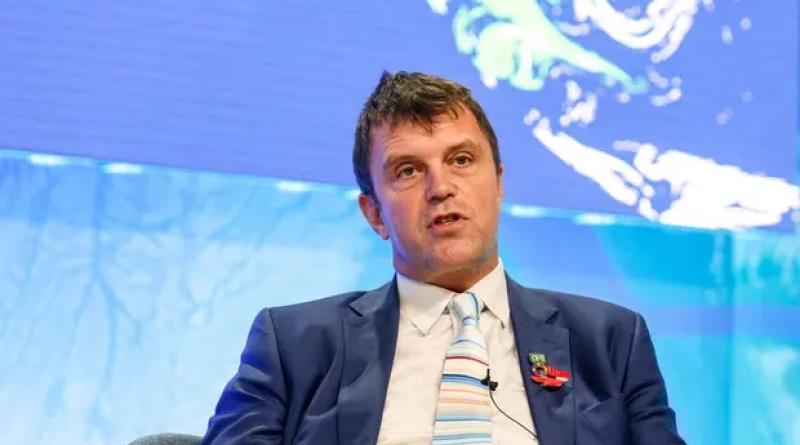The world could reach net zero greenhouse gas emissions in the early 2040s, substantially ahead of the mid-century climate target, if governments set more stretching goals and make bold policy decisions, the UK’s outgoing climate business expert has said.
Nigel Topping served for two years as the high-level champion for the UK’s presidency of the UN Cop26 climate summit, passing on the role to Egypt’s Mahmoud Mohieldin late last year at the Cop27 summit in Sharm el-Sheikh.
In his role, he forged alliances among businesses to lead a “race to zero”, by which companies set targets to reach net zero emissions and laid out the measures they would take to achieve them. More than 8,300 businesses around the world are now members of the UN’s Race to Zero initiative, alongside more than 3,000 other organisations including cities and local governments.
Topping said his experiences with businesses had shown him that governments could move much faster, without harming their countries’ competitiveness or alarming the business community.
“Governments could be way bolder in setting targets, and back their scientists, engineers, businesses, banks, cities to come up with solutions,” he said. “The moonshot analogy is not inappropriate.”
In the UK, the Climate Change Committee produced a plausible scenario by which the UK could reach net zero by 2042, he said. “Given that we’ve now got California and Germany saying 2045 is their target, I think you can argue quite strongly that the whole world could get to net zero in the early 2040s, and in many sectors in the late 2030s,” he said.
The experience of the Covid-19 pandemic had shown what governments could do when they tried, he added. “The lesson [from the pandemic] that I still don’t think we’ve learnt enough is that we can do unbelievable things, governments can turn on a dime if they need do, and the government/private sector relationship can be transformed to deliver solutions way, way faster, if we really put ourselves on an emergency footing.” .
He said the need for such an urgent transformation was growing more apparent in the form of extreme weather around the world.
“I think that squeeze is coming, because it’s a squeeze between the growing realisation of just how bad the damages are [from the climate crisis], and growing confidence – which is the real lesson I’d like us to take from Covid, which is that we’re amazing. We should back ourselves more,” he said.
He pointed to the slew of governments now aiming to phase out fossil fuel vehicles, and the extraordinary uptake of electric vehicles that has followed. “Once you’ve named an end date, it’s a really powerful signal. Not all markets have agreed, but once you’ve reached [a large proportion], you can go much faster,” he said. “Europe, and the US, and the rate that the Chinese and Indians are changing – it’s all over.”
However, he said some sectors were continuing to stand in the way of progress. Oil, gas and coal companies made bumper profits in the past year on the back of record fossil fuel prices which were sent soaring by Russia’s invasion of Ukraine.
This bonanza was built on false assumptions, however, said Topping. “The US oil companies are living in a fantasy land,” he said. “There’s still some quite big heads in the sand. But they will die. They cannot survive. Their Kodak moment is nigh.”
Topping said fossil fuel companies would do better to redirect their engineering skills towards renewable energy. “We’re maybe in the last huge bonanza of oil and gas profits. Maybe there’ll be another one, but shareholders will demand that those who can’t invest in the transition [to clean energy] will just have to give their money back to shareholders to allocate it,” he said.
Companies were transforming faster than many governments realised, Topping said. “There’s much more momentum in the system than most of the analysis suggests,” he said. Predictions of the growth of renewable energy and technologies such as electric vehicles and batteries had proved too conservative in recent years, he said, as sales have surged and technology has improved rapidly.
“A lot of this grows exponentially,” he said. “If you look at where we’re at now [in terms of reductions in greenhouse gas emissions], it never looks good enough. But if you look at the trajectory [for low-carbon technologies] it can be much more encouraging.”
Rich countries should see rapidly growing developing countries as competitors in the clean technology race, rather than focusing on their high emissions, he added.
“China is quite happy for the west to label it as a coal problem while it develops a global competitive leadership in [clean] sector after sector. And India is on the same track now. But you show me how many times western commentators point at India or China as competitors rather than polluters,” he said. “I think it’s a huge strategic mistake to underestimate how clearly [countries such as China and India] see this as the future.”





